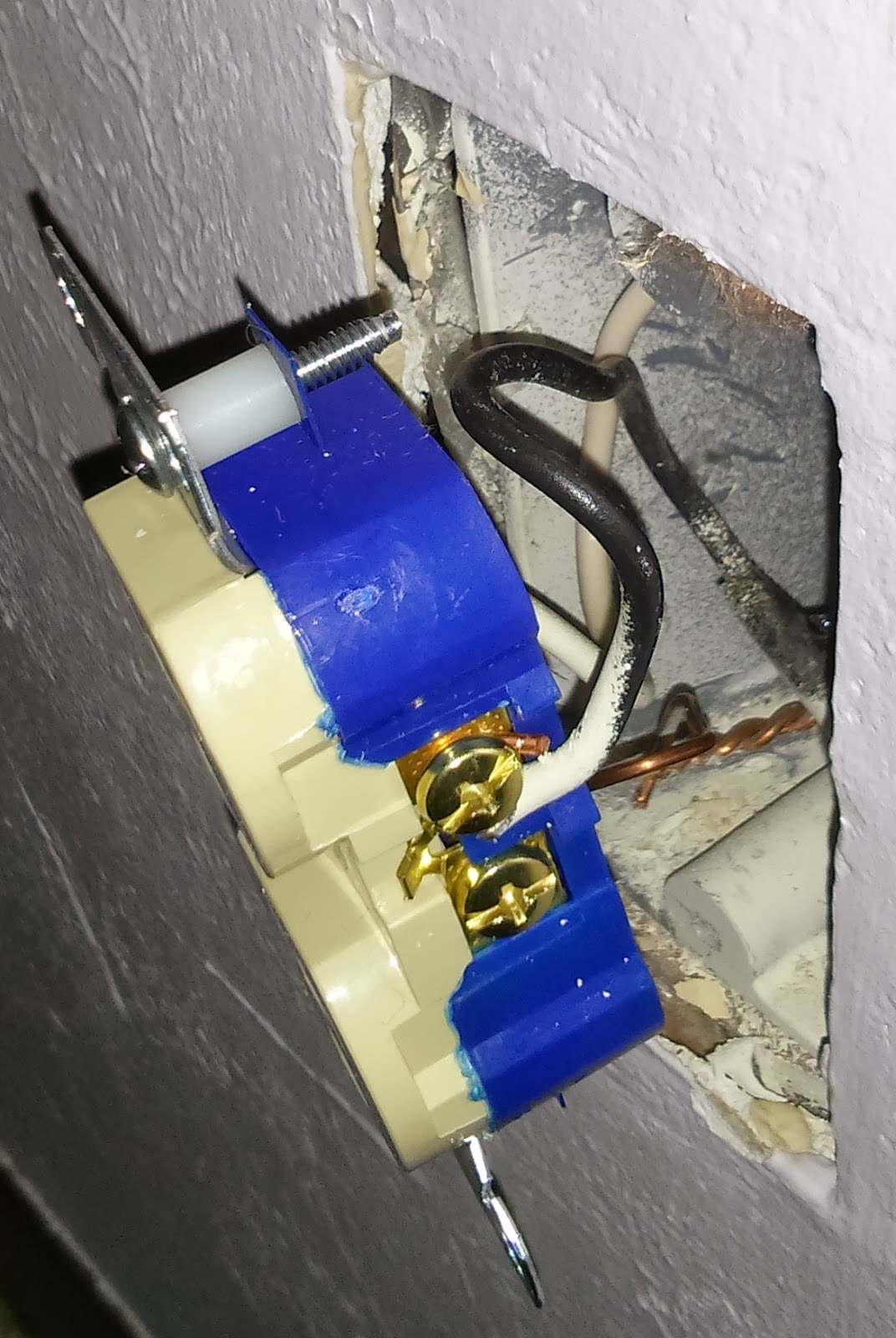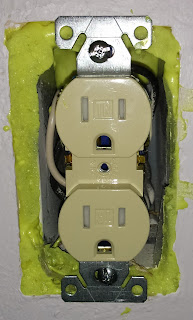Our
house has perhaps the worst outlets ever. The drywall holes were cut too
large, leaving the outlets unsupported. Push a plug in, and the outlet
moves into the wall at least 1/4". Then, the plug falls out because the
outlets no longer grip well. Finally, they are cold, and with the cover
off, there is a noticeable breeze.
As we work on a room, we are replacing the outlets. We are using Cooper
tamper-resistant (TR) outlets. These outlets have little shutters over
the holes, to resist foreign objects, and only allow plugs to be
inserted, in theory. However, little effort is needed to overcome the
mechanism, so emphasis on "resistant." They certainly are not tamper
proof.
To make up for the overly recessed boxes, and over sized drywall hole,
we put nylon spacers on the outlet's screws. Put the fiber washer on the
outside to hold the spacer on the outlet.
To cut down on the drafts, we used Great Stuff Window and Door spray
foam. Just a bit to fill the space between the box and drywall, and,
when dry, trim excessive flush with a razor blade. A little into box
holes should help, but do not fill the box. In the picture below, it
looks like a lot of foam, but the gap between the boxes and drywall is
really that large.
Be careful not to get the foam on anything you don't want it to stick
to. It can be cleaned up with acetone, but so can dried latex paint. A
single use is implied in the directions, but with a little acetone
dripped into the nozzle and applicator, it's foam can be cleaned out
while wet. Don't let the acetone sit, put a few drops in and then dump
the solution out, especially from the nozzle in case the acetone could
damage it.
The pre-cut foam pads that go under the outlet covers may help but are
too small. Regardless, the spray foam is likely to be better at
insulating and stopping air movement.
None of this is advice, do what is best for you, seek professional help if uncertain.

